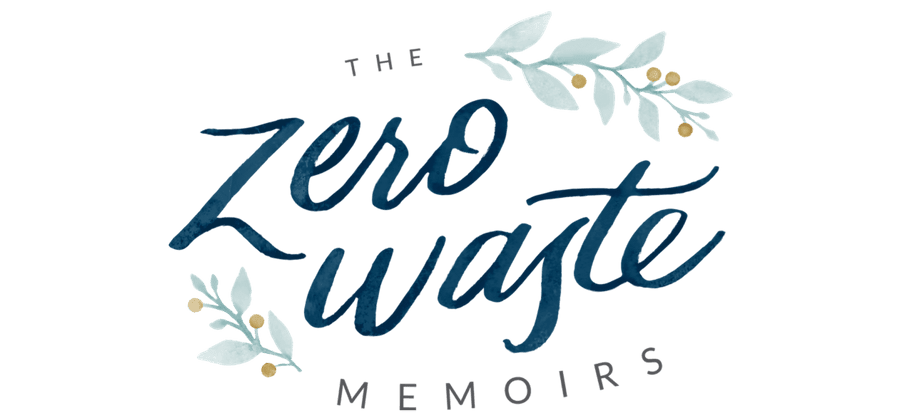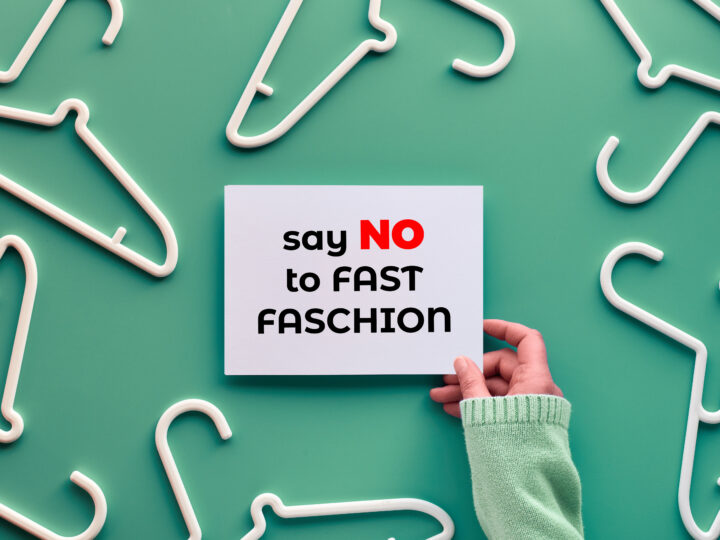Fast fashion has become a big business in recent years, as it allows everyone access to trendy clothes at affordable prices.
However, it is no secret that fast fashion is a disaster when it comes to the environment, unethical labor practices, and promoting a consumerist lifestyle.
But how do you tell companies apart? It’s not as easy as you may think to discern which companies are operating on a fast-fashion model, and which aren’t, as it’s not exactly something they want to advertise!
Quite the opposite is true. Some fast-fashion companies will go to great lengths to hide their unscrupulous practices, even going as far as “greenwashing” their consumers.
While other brands do have positive goals that they aim to achieve in the future, but they could still be doing a lot better right now to minimize their impact on the environment.
We’ve compiled a list of some of the worst offenders when it comes to fast fashion brands that you should avoid in order to lead a more eco-friendly lifestyle.
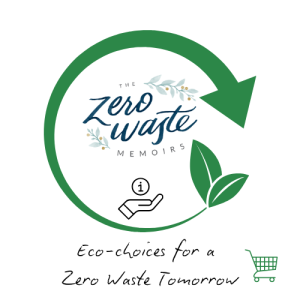
Table of Contents
What is Fast Fashion?
In a nutshell, fast fashion brands to avoid are those who constantly produce high volumes of clothing throughout the year. They employ cheap labor, use cheap fabrics, and operate on a quantity over quality ethos.
Think about it. If you can pick up a pair of pants for $10, someone will be paying the price. Whether it’s the child labor used to sew them, or the women working with cheap and hazardous chemicals to dye them. Either way, when you support fast fashion brands, you’re supporting unethical business practices.
I’ve written extensively about the disadvantages of fast fashion, so check out this article if you want to learn more. And once you’ve learned who to avoid, be sure to hear over to our pick of the top 40 ethical clothing brands – so you can shop smartly!
Unethical Clothing Brands to Avoid
Next time you’re looking to update your wardrobe, make a vote with your wallet by avoiding supporting these fast fashion brands and the practices they engage in.
Boohoo
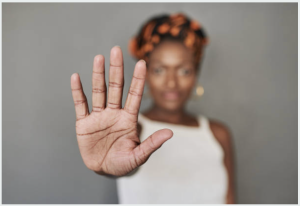
Founded in Manchester, UK, Boohoo is one of the worst fast fashion brands. The retailer is popular with the younger crowd, as it’s cheap and trendy, and it also includes PrettyLittleThing and NastyGal as part of their group of companies.
In 2019, Boohoo was named one of the least sustainable fashion brands, and in 2020, a journalist uncovered links to poor conditions and modern slavery practices at one of their suppliers.
Their practices have a negative impact on the environment, its people and wildlife. They don’t use eco-friendly textiles and there is no evidence that they have taken action to eliminate toxic chemicals from their products or implement water reduction initiatives. Their labor conditions are categorized as ‘very poor’, and in the Fashion Transparency Index, they received a score of 0-10% (not good at all).
They are opaque about whether they pay a living wage to employees, and clothing is made from synthetics, leather, and wool products of which they offer no evidence to support if they are sustainably sourced.
In short, to date, Boohoo are one of the worst fast fashion offenders. They upload over 100 new garments onto their website daily and many products are discarded to landfill after wearing as they add new, more up-to-date clothing designs.
ZARA
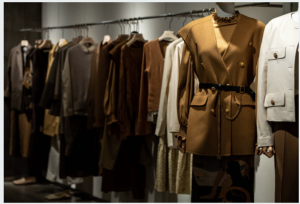
Zara is owned by parent company Inditex which also has other brands including Pull & Bear, Bershka and Massimo Dutti.
Many consumers are mistaken into thinking that Zara isn’t categorized as a ‘fast fashion’ brand because they charge more for their products than the likes of Boohoo or ASOS.
In fact, the term ‘fast fashion’ was first used, because of the way Zara could take a clothing design from drawing to a completed garment displayed in stores in less than two weeks.
The Spanish brand, which has almost 3,000 stores worldwide and is worth over $14 billion, releases 500 new products every single week.
They only release a limited number of each clothing item, encouraging consumers to buy quickly for ‘fear of missing out’. What happens then, is that the consumer wears the item, then simply discards it after wearing it a couple of times as it goes out of fashion.
The company has, in recent years, been implicated in forced labor scandals and they currently use conventional viscose and cotton to make most of their clothes. These types of synthetics shed microfibers which take hundreds of years to break down and can lead to deforestation and destruction of the environment when they are sent to landfill and not recycled.
Although Zara says their targets are to source all fabrics sustainably by 2025, and they do have a recycling program, vowing to send nothing to landfill by 2023, this still doesn’t alleviate the sheer quantity of clothing they are manufacturing annually.
These factors, among others, make the fast fashion industry one of the world’s largest polluters to date. Whether the companies in question address this adequately, still remains to be seen.
ASOS (As Seen On Screen)
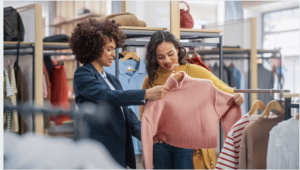
UK brand ASOS (As Seen On Screen) is a leader in disposable fashion. They have an extensive online store presence promoting ‘copycat’ clothing that celebrities have worn in films and TV shows.
Like Zara, they focus on a quick design turnaround and sell clothing via their website alongside 850 third-party vendors.
Although they do have a small line of sustainable clothes, the majority of their goods are currently made from plastic-derived materials, viscose, or non-organic cotton which contributes to harming the environment.
ASOS state on their website that they will ‘Be More Circular’ with their material choices by 2030 and will strive to use more sustainable practices in manufacturing, but if that is their pledge, why wait 8 years?
As ASOS is also an online-only company, they contribute to a negative carbon footprint and use excessive plastic packaging daily to ship items around the world.
Bershka
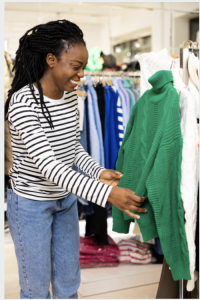
Since it was founded in 1998, Spanish brand Bershka has amassed over 1000 stores around the world.
They are owned by the same parent company as Zara and also have a negative environmental and social impact.
In 2017, the Inditex (parent company) annual report comprised more than 1800 suppliers and 7000 non-exclusive factories.
The company said at the time that their supply chain is socially responsible with respect for Human Rights, however, that wasn’t entirely true, as a story broke about Zara using forced labor as recently as 2020.
The company have also made targets and goals to reduce their water and plastic waste and said they will reduce greenhouse gas emissions, but to date, that information has been vague and has not been made available to the public.
Fashion Nova
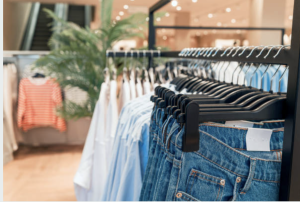
US-based brand Fashion Nova was founded in 2006 and sells an array of clothing and accessories, releasing almost 1000 new styles each week.
It’s one of the main fast fashion companies to avoid.
They appear to celebrate taking designer clothes celebrities have worn and recreating an almost identical match within hours.
This is not just an infringement on the original design, but it also speaks volumes about the ethics of this Fast Fashion company.
The company were involved in a scandal in 2019, where it was discovered that they illegally paid low wages to their factory workers in the US, with workers only earning $3 an hour.
They appear to be unclear in their policies and don’t release any targets or goals when it comes to improving their environmental impact or making positive changes for their workers, and they are also reticent about releasing information on their suppliers.
Forever 21
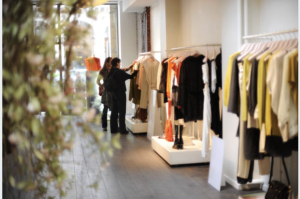
American brand Forever 21 have been embroiled in many lawsuits when it comes to their labor practices and paying poor employee wages.
They have also been sued by other fashion designers for trademark infringement and by other fast-fashion brands such as H&M for copying designs.
When you try and dig deeper into the company, you find there’s a distinct lack of transparency in the areas of traceability, worker empowerment, suppliers and environmental management.
They have not publicly shared any targets or goals when it comes to improving their environmental impact and their ecological policies are extremely vague with no proof that improvements have been made.
Forever 21 also incorporates animal-derived materials such as wool and fur without stating where they are sourced from.
Brandy & Melville
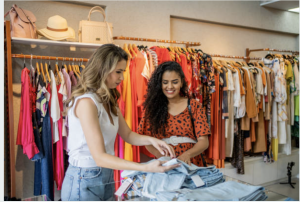
Brandy & Melville was founded in Italy in 1970 with their clothes aimed at teenage girls and young women.
What makes this a brand to avoid is their negative sizing policy which excludes the majority of women.
They run their business model and sizing policy as “one size fits all”, however, their clothes are made for extremely slim women, and they offer no plus-size alternatives. In addition, they have been accused by former employees of racism and discriminatory hiring practices according to a recent article.
Aside from this, they also do not publish information on their manufacturing process, suppliers, or the impact that their business has on the environment or their workplace.
H&M
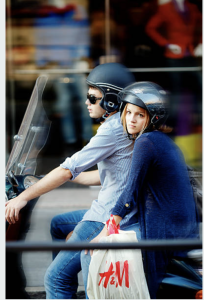
One of the most popular brands in the world is Swedish retailer, H&M which has made huge steps into increasing its use of sustainable fabrics including organic linen and recycled materials.
They are also a member of the Better Cotton Initiative and the Organic Cotton Accelerator.
However, as recently as in the last 12 months, the company have been accused of green washing consumers. Research undertaken by the Big Issue suggests that H&M are misleading customers over their green credentials.
Their ‘Conscious Collection’, supposedly made from more sustainable materials, such as recycled polyester or organic cotton, was instead found to contain more damaging synthetics than the company’s regular clothing line.
This isn’t the first time the store has been in the news either, the SOMO investigation in 2017 found the use of child labor in their factories where workers were paid a measly 13p an hour.
Missguided

Missguided was founded in the UK in 2009 and since then the company has regularly been embroiled in controversy with regard their environmental and labor policies. They pride themselves on creating not “fast fashion”, but “rapid” fashion, and launch up to a whopping 1,000 new products every week, encouraging rampant consumerism and over-consumption in young people.
The company was involved in a scandal in 2017, where they were found to be selling a pair of faux fur shoes which actually contained real fur. This instantly makes them less trustworthy and unappealing to environmentally conscious consumers.
They are also serial offenders when it comes to harming the environment. They have been known to burn their unsold stock which is detrimental for the planet and have not published any targets or goals to reduce their waste or become more sustainable in the future.
Despite having stated that they run a worker empowerment initiative, there is no solid proof that they run the program or pay a living wage. Unfortunately, this is one of the fast fashion companies that have way too many issues to list.
Bestseller
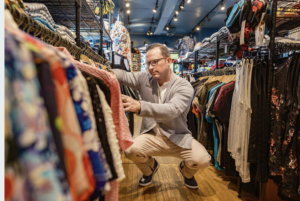
Bestseller is a Danish group that runs a multitude of fast fashion brands to avoid.
They upload new products every day and run a demanding production process which isn’t good for the environment or their workers.
They incorporate synthetic materials into their clothing which are not sustainable as well as using animal by-products such as wool and leather.
However, recently on their website, they say they are working on finding good leather alternatives and have recently invested in biotech company VitroLabs which grows cell-cultivated leather as a more sustainable alternative.
They are also one of the first fast-fashion retailers to scale a blockchain solution to be able to trace raw materials and suppliers to end products to ensure they are ethical.
Like a lot of fast fashion brands, they have also released targets and goals about becoming more sustainable by 2025 and becoming a member of the Ethical Trading Initiative which aims to bring workers a fair wage. It will be interesting to see if the company live up to their press releases.
C&A
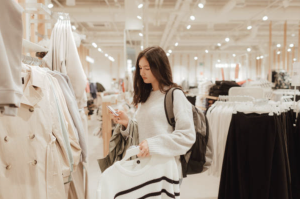
C&A owns multiple fast fashion companies and is European-owned.
Although they had scored highly in their Policy, Governance and supply chain traceability, there are areas where they score lower, such as Supplier Assessment and Remediation, Spotlight Issues: Conditions, Consumption, Composition, and Climate.
What this means is, that although they are open about the basic information about where they source their products and supplies, they have a negative environmental impact.
They also use animal-based products and do not disclose if they are sourced ethically.
As a company, they have remarked on how they need to do more to be sustainable and have now promoted a 2028 Sustainability Strategy focused on three key objectives – Unite & Inspire, Renew & Restore, and Innovate & Lead which appears on paper to address most key concerns. One to watch.
Cotton On
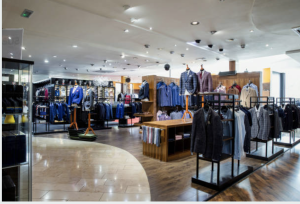
Australia’s largest fast fashion brand, Cotton On, owns eight other brands as well as running 1,500 stores across 18 countries.
As a fast fashion brand, they produce huge amounts of garments which they sell cheaply.
Although they are members of the Better Cotton Initiative, they also use unsustainable materials such as viscose and polyester which use up a lot of energy and water as well as potentially containing hazardous chemicals.
Cotton On also uses leather and wool in some of their clothing products but is not transparent as to who their suppliers are, nor do they detail ethical sourcing practices.
Gap Inc.
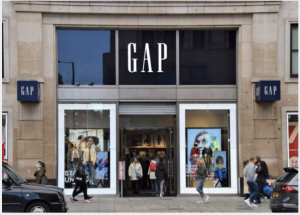
American brand Gap Inc. is a clothing and accessories retailer with 4,000 stores worldwide which includes brands like Banana Republic and Old Navy under its umbrella.
In recent years, the company have shown steps in improving its work conditions, although, as of last year, none of its supply chains was certified by labor standards that guarantee living wages, or advocate for workers’ health and safety.
They do, however, seem to be moving in the right direction when it comes to sustainable practices. In 2020, Gap released their annual sustainability report. The company showed a variety of goals being met such as using recyclable cardboard hangers, reducing single-use plastics, and offering educational programs for women throughout their supply chain.
The company are certainly saying, even writing the right things, however, it’s evident that more can still be done and improved upon.
Esprit
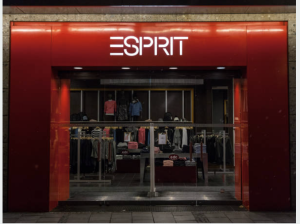
Esprit is a company that sells an array of clothing, accessories, and homeware with hundreds of stores around the world.
They have made commitments and public goals when it comes to incorporating sustainable materials into their products and advocate for ‘Circular Fashion’ which no longer wastes clothes – instead the company recycles them.
They have pledged to improve wages for all workers in the supply chain as well as providing a suppliers list that is updated every 6 months for transparency.
Despite these positive steps, they only currently use a small percentage of sustainable fabrics with only a small quantity of recycled polyester being used in their products, so we can’t be sure if they are simply trying to “green wash” consumers at this stage.
Guess
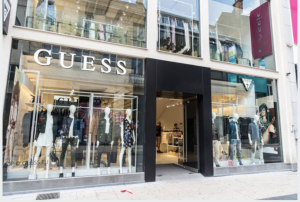
Guess was founded in the U.S. and has remained one of the country’s most popular brands throughout the years.
Although they released plans in 2021 to become more sustainable, inclusive and product responsible, many of these goals are still to be achieved.
They still only source 20% of their cotton as Better Cotton, and still need to become more inclusive and strengthen their supply chain social responsibility.
To date, there is no proof that they have reduced or eliminated hazardous chemicals from their manufacturing process, which still causes some concern and they have not published documentation to show that they pay a living wage to workers or will forfeit using animal derived materials including leather, down and wool.
Mango
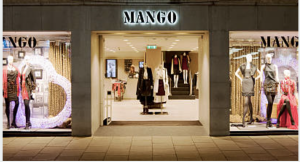
As of 2019, Mango had 2,100 stores across 110 countries around the world, and the fast fashion retailers take just 4-6 weeks for new designs to be turned around from conception to shop floor.
Recently, the company announced a number of goals and targets to ensure their brand becomes more sustainable in the future.
These goals include using 100% ecological cotton in their clothing by 2025. They have also set an objective to increase sustainable fibers including recycled polyester (up to 50% by 2025), and also forecast that 100% of cellulose fibers will be origin traceable by the same year.
However, as good as this all sounds, they are still working on the same business model as Zara et al, replacing old lines with new looks rather than replenishing the same stock, encouraging consumers to buy, wear and discard the items in a short space of time. Notably, there’s no information about wasted garment stock or how it is disposed of.
Massimo Dutti
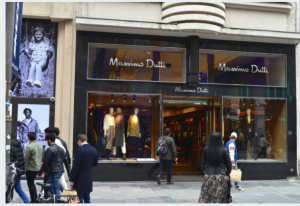
Massimo Dutti started out in 1985 as a menswear brand but later branched out into fashion for women too.
They focus on style and elegance in their designs, but as they are a sister brand of Zara, just how sustainable and ethical are they?
It appears that they are taking positive steps, such as their collection, ‘Join Life’, which is made from ecologically grown cotton and other recycled fibers.
Their website states that by 2023, they will be using 100% sustainable cellulose fibers, using 100% green packaging, and be generating 100% zero waste, and by 2025 they will be creating garments with 100% sustainable materials including cotton, linen, and polyester.
However, there’s still limited transparency on supply chain emissions, material origins and they don’t divulge as to whether they pay their workers a living wage.
Miss Selfridge
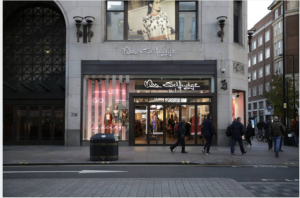
Part of the Arcadia Group, Miss Selfridge maintains that the group is committed to sustainability and will produce fast fashion garments in an ethical, responsible way.
Let’s start with the positive. They are a member of the Better Cotton Initiative, which promotes sustainable cotton production by using less water and pesticides.
However, they don’t address their manufacturing, don’t mention sustainability targets or reducing any carbon emissions through their supply chains and importantly, there’s no evidence to show that they have taken any action to eliminate hazardous chemicals during manufacturing.
They also incorporate leather, wool and down into their designs without stating where these animal by-products come from, which calls their ethics as a company into question
Nasty Gal
Nasty Gal started as an eBay store back in 2006, but today as part of the infamous Boohoo Group, they are a fast fashion giant with a poor reputation.
They are a member of the Better Cotton Initiative, however, they currently only source around 10% of their cotton through that initiative. They also state that by 2025, all of their polyester and cotton fabrics will be sustainably sourced, but they haven’t published any information to back up this claim.
They don’t disclose their suppliers or offer any transparency as to how they will reduce carbon emissions by 2030, they also keep information such as whether they pay workers a living wage under wraps.
Given their parent company’s recent scandals regarding modern slavery and workers conditions, without further transparency, we can only assume that Nasty Gal operates in the same way.
New Look
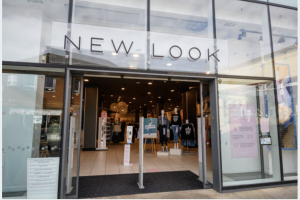
New Look is a hip British brand founded in 1969 with over 500 physical stores and an online shopping website.
Although a fast fashion brand (uploading 800 new products a week), they appear to be taking steps in the right direction thanks to their vegan footwear collection and as members of the Better Cotton Initiative.
However, New Look has been party to some scandals including paying workers £3 an hour in sweatshops as well as not showing any signs of reducing water wastage or eliminating hazardous chemicals from their manufacturing.
When the COVID19 pandemic hit, they suspended all payments to their suppliers for existing products and have still not paid them to date.
However, there are a couple of positives in here. They do have a policy that prevents deforestation in their supply chain, say that 100% of their cotton will be sustainable by mid-2022 and that they have 97% diversion from landfill which they are trying to improve on. One to watch.
New Yorker
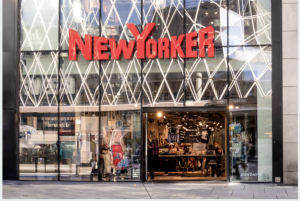
German based brand, New Yorker is a company that does not share any information on their practices or sustainability targets for the future. Therefore, we have been unable to obtain any information regarding chemical use in products, water wastage or use of animal by-products.
When companies do everything they can to keep this information out of the public domain, there has to be a reason, as most ethical companies are open and transparent about their business practices and explain to consumers how they are trying to improve their business model.
Next
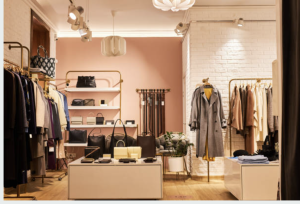
British retailer Next was criticized in 2014 for not paying their workers a living wage.
Although they have made positive steps to pay their employees adequately since, there are still areas requiring improvement, particularly when it comes to using animal by-products in their clothing and accessories.
The company often use leather, wool and real fur in their products and don’t have any targets to reduce this, making Next an unsuitable choice consumers who prefer to live a vegan or more sustainable lifestyle.
PrettyLittleThing
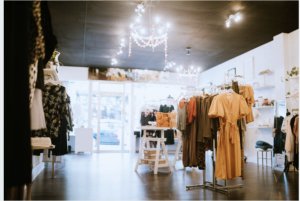
Another fast fashion brand that stacks them high and sells them low is PrettyLittleThing.
They promote themselves as one of the most affordable brands in the world, catering to young consumers on a tight budget.
However, they are owned by the Boohoo Group, who have been known to pay below the living wage and use forced labor.
The company barely publish sustainability targets or brand supplier policies or any information regarding forced labor. Also, to add another twist, the group of brands were discovered in April 2021 to be selling the same products on different websites for inflated prices.
There have been some changes on their website of late. This includes information that the group of companies become part of Fast Forward, an auditing and improvement program to access labor standards training and guidance.
Also included on the site is information that they will be more transparent, by publishing their ‘Global Factory List’ which will be updated bi-annually. They have also said that by 2025 they will publish key raw material supply chain information.
It’s good to see that they are making small changes, however, we cannot forget that only a few years ago, this was the company that stated in its U.S. website terms and conditions that it sells clothing that may contain chemicals known to cause cancer and child birth defects. The question is, can you ever trust a company that does that just for profit?
Primark
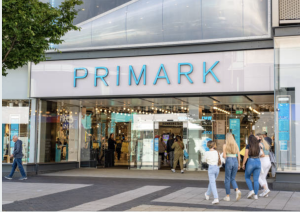
Primark is an Irish retailer and one of the worst fast fashion brands in the UK.
They have a business model that states, “buy once, wear once” and a lot of their clothes are made from poor quality materials that don’t last very long, creating tons of wastage.
It has been documented that they use sweatshops involved in child labor and modern slavery, and don’t pay a living wage to all of their workers. One of their factories in Bangladesh was affected badly by Primark’s decision to stop paying their workers due to the pandemic, and workers were being sent home without pay.
Pull and Bear
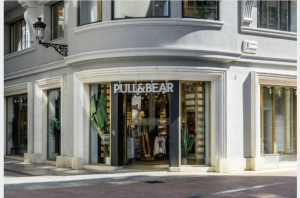
Pull and Bear, the sister company of Zara, has a ‘Join Life’ collection that promotes sustainable clothing, however, be aware that the items are not 100% made from ecological materials with some only containing 15% recycled and sustainable content.
Also, the clothes that are not part of this collection are made from zero sustainable materials, which has a negative impact on the environment.
In addition, they are not transparent regarding supply chain emissions and material origins, and they don’t divulge whether they pay their workers a living wage.
s. Oliver
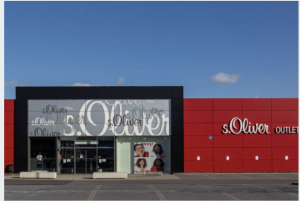
German brand s. Oliver does not provide the public with complete information on their suppliers.
They use materials derived from animals to manufacture clothing including leather, wool, and fur as well as other materials that have a negative impact on the environment due to the hazardous chemicals and high water usage.
The brand also does not release any targets or goals that they have to reduce any negative impact on the environment or whether they desire to incorporate more sustainability into their manufacturing process.
Stradivarius
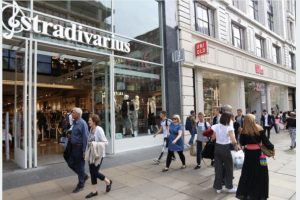
Part of the Inditex Group that owns Zara, Massimo Dutti and Pull & Bear, Stradivarius caters to young women with relaxed, comfortable clothing.
In 2019, the company produced over 1.5 billion items, and many of those will have ended up in landfill as consumers rush to buy the next trending piece of clothing or accessory.
They do appear to be making small changes such as introducing the ‘Closing the Loop’ repair and reuse program, where they encourage shoppers to drop their garments off for recycling. However they aren’t transparent in other ways, regarding reducing waste during the manufacturing process.
Also, they also don’t release important information about their suppliers, nor do we know what their policies are on labor or animal products.
Topshop
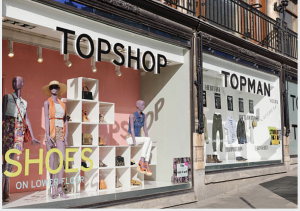
Topshop is a British brand owned by the Arcadia Group with hundreds of stores globally.
One of the biggest scandals to surround Topshop are the actions of its founder, Philip Green who took £571 million from BHS, another Arcadia Group company, as dividends and left a huge £208 million deficit sum in his employees’ pension funds when the company closed down.
Although his actions were not directly involved with Topshop, there have been various accusations of poor treatment and welfare towards Topshop staff as well.
Uniqlo
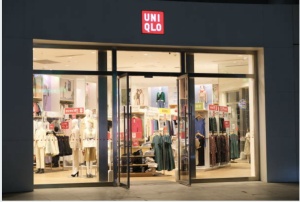
Uniqlo was founded in Japan in 1949 and has since grown to be one of the world’s largest fast fashion brands.
Unfortunately, in 2015 there were accusations of labor rights violations in China which allegedly continued in subsequent years.
When it comes to divulging public information, Uniqlo are not forthcoming with details on their suppliers or working conditions, nor they do not release information about their business practices, working conditions or environmental impact which should be in the public domain.
United Colors of Benetton
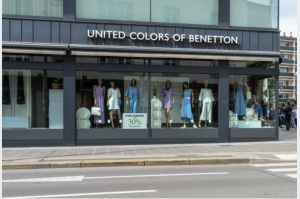
United Colors of Benetton is a brand that has been involved in a multitude of scandals in recent years due to the poor working conditions in their factories.
They announced that they were improving the welfare of their workers but released no further information on how they plan to implement this or any evidence as to whether there have been any signs of improvement since.
Urban Outfitters
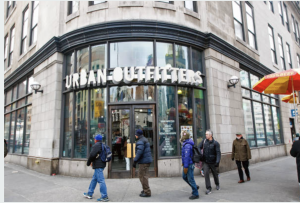
American brand Urban Outfitters was originally launched for students in 1970. They are another company reluctant to share any information on their suppliers and they refuse to state where their products come from, or the conditions of the workers who make them.
They do have a reuse and recycle program observed in many stores and they do use solar power in their main distribution centre in the U.S. They also stock an ‘Urban Renewal’ collection which utilizes vintage and reimagined pieces. In 2019, they began to rent out clothing from different brands under their group, thus, joining the circular economy.
However, although this is positive, they have no published documentation on their sustainability goals and when it came to transparency they scored really low – less than 20% on the Fashion Transparency index.
Also, their supplier factories have said that the company was constantly finding loopholes, so they didn’t have to pay for orders produced at the start of the pandemic.
Victoria’s Secret
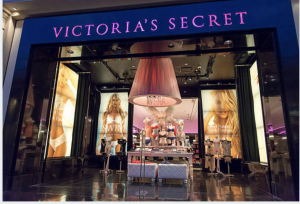
Victoria’s Secret is one of the most popular American lingerie brands endorsed by supermodels. They sell clothing and beauty products on a quick turnaround.
In 2012, there was an investigation which resulted in the finding that the company’s manufacturing process involved child labor which was part of an organic and fairtrade cotton program.
Aside from this, the company is reluctant to release any information regarding their suppliers or any targets in relation to their social and environmental impact.
In 2020, it was also announced that Victoria’s Secret had thrown away hundreds of products that had not been sold, which had a huge negative impact on the environment.
Frequently Asked Questions
What are the disadvantages of fast fashion?
Fast fashion may seem appealing to many initially, thanks to the cheap price tags, however, there are more disadvantages than advantages, which include poor working conditions, child labor and not paying workers fairly.
There are also numerous environmental issues, as many of the clothes are made from plastic derived materials and hazardous chemicals which can be harmful to health and the planet.
Why is fast fashion bad for the economy?
As fast fashion is so cheap, it may appear that it is positive for the economy as it increases consumer spend.
However, it has more negative effects on the economy, due to continued stress on production resources, as well as the reputation of businesses putting their profits ahead of their workers’ welfare which causes frequent employee turnover.
Conclusion
Fast fashion follows designer trends and appears to be a good option for those on a budget. However, many consumers don’t research or understand that the unethical practices that many of these companies adhere to, and this becomes a global issue that affects us all.
The best thing we can do is avoid these companies or hold them accountable until they make significant changes to the way they operate. After all, if nobody buys their clothes, they will have no option but to slow down production.
Instead, wait a little longer, and invest in quality clothing from ethical suppliers who put people and the planet before profit. Initially, clothing may cost more but garments will last longer, and you will have peace of mind knowing that they are created from quality, ethically-sourced materials that are free of any water, waste, or hazardous chemicals.
As designer Vivienne Westwood says, “spend more, buy less” – which is a great motto for those with an eco-conscious mindset.
If you’re still unsure about a company’s practices, it’s always wise to conduct further research and educate yourself more on what qualifies as an unfair practice. Don’t rely on a company’s own website either, many businesses say what they want you to hear without providing any evidence of action.
